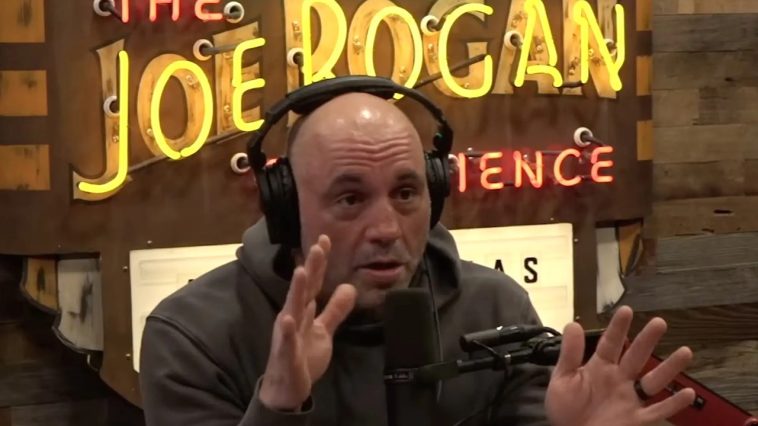During last week’s debate on ABC between former President Donald Trump and Kamala Harris, it was clear who was relishing the spotlight. An episode of ‘The Joe Rogan Experience’ hosted by well-known comedian and podcast host Joe Rogan dropped his observations. Recorded on Sept. 11 and shared five days later, Rogan’s commentary strongly favored Harris’s performance.
One might argue that Rogan’s infatuation with Harris’s debating ability was misplaced. The acclaimed podcaster insisted that Harris ‘nailed it’ during the debate that gathered an impressive viewership of 67 million. However, not many would agree with Rogan’s shall we say, overly optimistic take.
Rogan also voiced the opinion that Harris was ‘better prepared’ than Trump for the debate. This is nothing but a dressed-up misrepresentation; what he perceives as ‘prepared’, many view as the triumph of rehearsed political rhetoric over substantive political ingenuity.
The podcaster was brazenly dismissive of true policy debates, saying the differing views of Harris and Trump were not about who would have better policies or which leader would be better for the country. Many would argue this revealed a serious lack of depth in his critique, relegating the importance of policy to secondary status.
Rogan’s confusion drew a comparison between Trump, a seasoned businessman-turned-politician, and a comedian. He labeled Trump’s debate timing as ‘funny like a comic’, which can either reflect his poor comprehension of Trump’s unique style or a wilful attempt to miscast the former president as simply jesting around in a serious political debate.
Oddly enough, despite the explosion of new polls about the 2024 Presidential Election, Rogan’s bias towards Harris stood unshaken. These polls, by the way, highlighted Harris’s supposed popularity among Black Protestants and Hispanic Catholics, although we could question their impartiality.
Before becoming a fan of Harris’s debatable debate skills, Rogan openly supported Robert F. Kennedy Jr. for president. That was before the latter’s early exit from the presidential race and Rogan’s consequent alignment with Trump. Not everyone views this political flip-flop understandably.
Last month, Trump expressed disappointment when Rogan endorsed a then-independent candidate. A fair question to ask would be why Rogan’s ceiling of political consistency seems so low.
In an earlier episode of his podcast, Rogan made the noteworthy statement that he ‘would rather vote for Trump than Biden’ during the 2020 presidential cycle. Now isn’t it curious to see the apparent U-turn in his stance? It’s enough to leave one wondering about the convictions of the podcaster.
He once shared his views on the immense pressures associated with the presidency. According to him, ‘The pressure of being president of the United States is something that no one has ever prepared for.’ A curious statement, but it’s hard to argue with the logic, barring Trump, of course, who has shown considerable resilience.
However, it’s worth noting that Rogan declared, ‘The only one who seems to be fine with it [presidential pressure] is Trump, oddly enough.’ This genuinely positive observation about Trump could, however, be seen as something of an unwelcome admission on Rogan’s part, considering his frequent criticisms of the former president.
Before overtly declaring his choice for Trump in 2020, Rogan had earlier shown support for Democrat Bernie Sanders. This vacillating stance further reveals his inconsistency, oscillating between extremes rather nonchalantly.
These observations and changes in political support, unfortunately, shed light on Rogan’s seemingly weak grasp on the complexities of politics and policy. Displaying stark inconsistency, he moved from favoring Sanders, a left-wing ideologue, to Trump, a conservative leader, and then landing on flimsy compliments for Kamala Harris.
This leaves us asking – where does Rogan truly stand? Not just in terms of political preference but in understanding the finer nuance of policy, debate, and leadership abilities. His proclamations appear aimlessly directed and lack critical introspection, oscillating with changeable conviction rather than a robust understanding of the landscape.
It is a concerning spectacle, indicative of a lack of serious engagement with the political landscape. It shows a lack of continuity in understanding the full range of political viewpoints; hopping from one extreme to the other is not a solid foundation for judgement.
Understanding Rogan’s political support requires unwrapping layers of constant shuffling between candidates. As we peek beneath the veneer of Rogan’s podcast commentary, it becomes clear that the complexities of political policy and leadership are not being given their due consideration.


